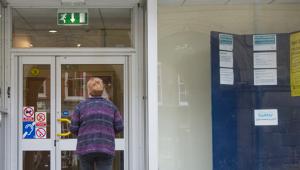By Richard Johnstone | 17 November 2014
Government changes to benefits and tax credits, intended to save nearly £20bn in the current financial year, have produced only £2.5bn in cash savings, an analysis by the Institute for Fiscal Studies has found.
Examining the government’s changes, which include a £26,000 household benefit cap and the so-called bedroom tax, the IFS highlighted the range of reforms were intended to save £19bn in 2014/15, compared to no change on the policy in 2010/11.
However, the report found the savings had not been realised for a number of reasons, including that the change from benefit up-rating from the retail prices index measure of inflation to consumer prices index has not yet led to the £4bn of cash savings. Instead, it would mean benefits were no longer expected to increase in real terms.
In addition, higher-than-projected spending on pensioner benefits had offset savings from other measures. Combined spending on state pensions, Pension Credit, and universal pensioner benefits such as the winter fuel payment, will be £5bn higher in 2014/15 than in 2010/11.
IFS researchers found that, to some extent, this reflects the ageing population, with the number of people receiving the state pension up 400,000 over the period, but it was mainly a result of higher spending per pensioner.
On average, each recipient receives nearly £500 a year following policy decisions to give pensioners more generous benefits, such as the triple-lock on annual pension uprating, the IFS observation found.
Once pensioner benefits are removed, around £7.5bn of extra spending is accounted for by an increase in Housing Benefit payments and higher-than-expected spending on tax credits.
Housing Benefit was up over the period by £700m – versus an anticipated fall in spending of £2.3bn – while spending on tax credits had not fallen as fast as predicted by the Office for Budget Responsibility.
Only £2.7bn will be saved in the current year, compared to a forecast fall of £4.6bn.
These have important fiscal consequences ahead of next month’s Autumn Statement, and for Chancellor George Osborne’s target to make £25bn worth of savings to bring the public finances back into balance, the IFS observation stated.
The rapid growth of Housing Benefit and tax credits mean slow earnings growth has the potential to push up spending. The failure of the introduction of the Employment and Support Allowance to meet its savings target meant it was now ‘an open question’ whether the Personal Independence Payment reform would cut costs either.
‘Mr Osborne wants further cuts to social security spending to help reduce the deficit. He may end up having to make cuts just to stay on track,’ the report concluded.






















